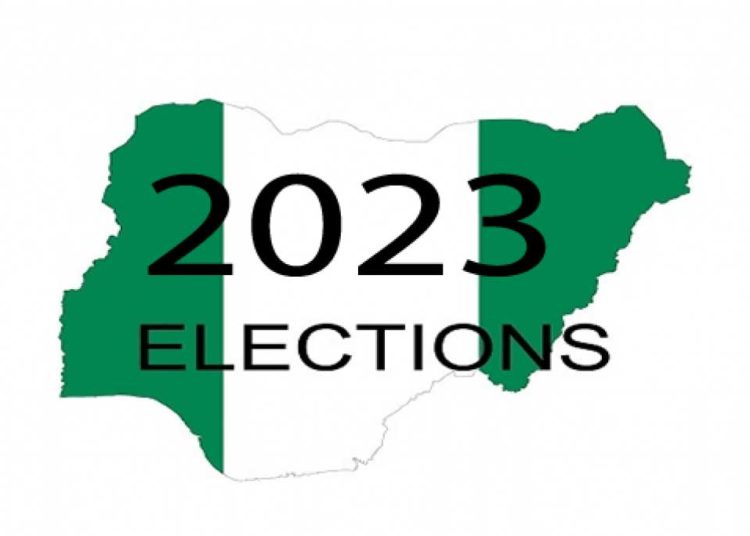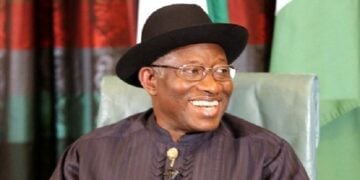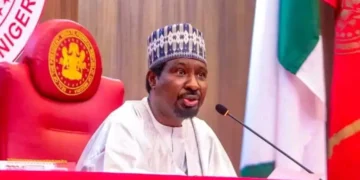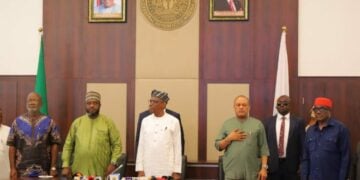Nine Civil Society Organisations (CSOs) in Nigeria have raised concern that the 2023 general elections are under threat because some of the appointed Independent National Electoral Commission (INEC) Resident Electoral Commissioners (RECs) are partisan.
The CSOs also criticized the screening exercise conducted by the senate on the appointed RECs, adding that the lawmakers ought to have known that some of them were engaged in partisanship.
On July 26, 2022, the Nigerian senate announced President Buhari’s appointment of 19 RECs following the expiration of the tenure of the outgone RECs in those states. Of the 19, 14 were new appointments, while five were reappointed.
But speaking at a press conference yesterday, the CSOs said they would ensure monitoring of the INEC officials ahead of the 2023 general elections.
The CSOs are: Yiaga Africa; International Press Center; Center for Media and Society; The Albino Foundation; Elect Her and Nigerian Women Trust Fund.
Others are: Partners for Electoral Reform; Inclusive Friends Association and The Kukah Centre.
Speaking at the press conference, the executive director of Yiaga Africa, Mr Samson Itodo, said however that the outgone RECs deserved commendation for their hard work and meritorious service to the nation as their stewardship as heads of INEC in the states they served contributed to the marked improvement in electoral governance in Nigeria.
“The new nominees include Pauline Onyeka Ugochi (Imo); Muhammad Lawal Bashir (Sokoto); Prof. Ayobami Salami (Oyo); Zango Abdu (Katsina); Queen Elizabeth Agwu (Ebonyi); Agundu Tersoo (Benue), Yomere Oritsemlebi (Delta); Prof. Yahaya Ibrahim, (Kaduna); Dr. Nura Ali (Kano); Agu Uchenna Sylvia (Enugu); Ahmed Garki (FCT); Hudu Yunusa (Bauchi); Prof. Uzochukwu Chijioke, (Anambra); and Mohammed Nura (Yobe). The reappointed nominees include Ibrahim Abdullahi (Adamawa); Obo Effanga (Cross River); Umar Ibrahim (Taraba); Agboke Olaleke (Ogun); and Prof. Samuel Egwu.(Kogi).
“In his letter to the senate, President Buhari asserted the request for the confirmation of the nominees was in accordance with the provisions of Section 154 (1) of the Nigerian Constitution. Our investigation and analysis prove the contrary. Some of the nominees of the president fail the constitutional test of non-partisanship and unquestionable integrity. Evidence abounds that some of the nominees are either partisan, politically aligned, or previously indicted for corruption. To mention a few, Prof. Muhammad Lawal Bashir from Sokoto was a Governorship aspirant under the All Progressives Congress (APC) in the 2015 elections cycle. Mrs. Sylvia Uchenna Agu, the nominee for Enugu State, is believed to be the younger sister of the APC deputy national chairman, Southeast. The nominee for Imo State, Mrs Pauline Onyeka Ugochi, a former Head of ICT at INEC in Imo State, gained notoriety for alleged corruption and connivance with politicians to undermine elections. Mrs. Queen Elizabeth Agwu, a former Accountant-General of the Ebonyi, was suspended allegedly on the grounds of incompetence and corruption in 2016.
“We contend that the appointment of these individuals as RECs will significantly undermine the neutrality and impartiality of the Independent National Electoral Commission, and it will increase mistrust in INEC and Nigeria’s electoral process. By the combined effect of Section 156 (1)(a) and Third Schedule, Part 1, Item F, paragraph 14 (1), these individuals are constitutionally prohibited from any appointment as members of INEC. It will be against the sacred spirit of the Constitution to accept their nomination. Given their antecedent and close affinity with political parties, it is improbable that they will remain neutral and objective if successfully screened as INEC Resident Electoral Commissioners (REC),” the CSOs said.





